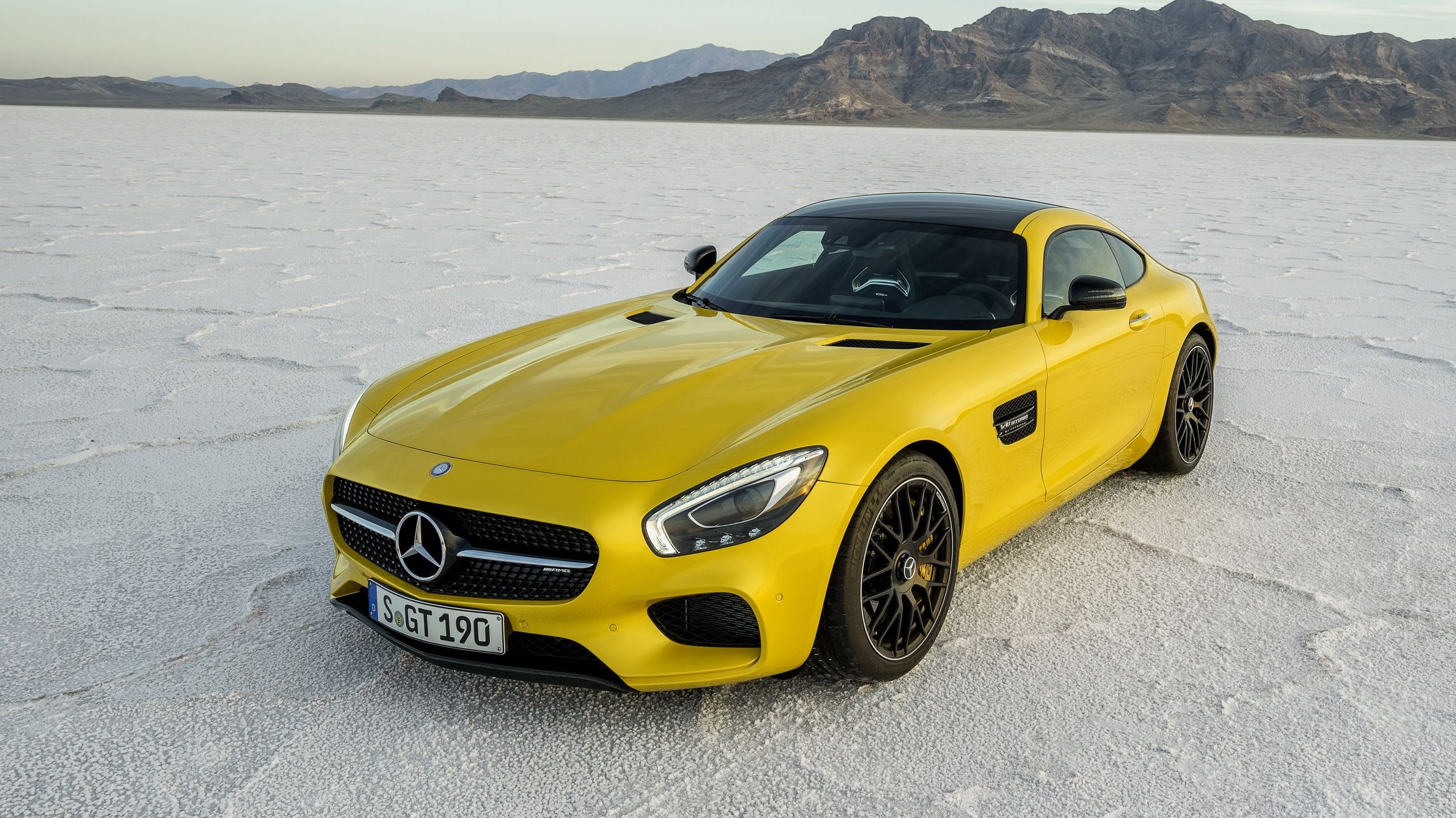The sports car->ke506 world is changing at an accelerating rate. Battery packs are encroaching on territory where enormous displacement once ruled supreme, and now it looks like Mercedes-Benz’s->ke187 performance tuning division, AMG,->ke8 will soon cross to the ranks of hybrid power.
That’s the word from Mercedes-Benz’s head of R&D Thomas Weber. Speaking to the British publication Autocar, Weber confirmed that a hybridized AMG performance model could go on sale in the next five years.
The impetus comes from growing pressure to increase engine efficiency across the board, with more than just Mercedes AMG feeling the squeeze to go green. Weber said that every part of the Mercedes stable needs a revamp, adding, “No one part of our business can be carried on the back of another. It’s a huge task to reduce AMG fuel consumption but we’ve realized that it’s also a huge opportunity.”
As emission regulations in the EU become more stringent, Daimler must meet the goal of reducing average CO2 output to 101 g/km by 2020. Failure to do so will result in big fines. The most effective way to reduce emissions without significantly hampering performance seems to be through the use of battery power.
Weber went on to say that, considering the current market climate, hybrid performance was not the right move, adding that AMG customers wanted the highest-performance option available. “We don’t know when they will be ready for hybrid,” he said.
Regardless, Weber says AMG is prepping to offer something “special” by 2020, at which time it will be necessary to unveil the performance division’s hybrid->ke147 and electrified->ke1030 plans.
Continue reading for the full story.
Why it matters
This latest news coincides with earlier statements Weber made mid-July. In a report from the Australian publication Motoring, the R&D boss told journalists that “We are completely convinced we will stay forever with V-8s,” but added that displacement would probably see a downsize and the turbos would probably get bigger. What’s more, he went on to say that the key to high performance could be electrification, with technology sourced directly from the world of motorsport.->ke447
"There is room for something which is more leaning to boost and energy harvesting and a role model could be the F1 story. It's a little bit different than the hybrid concept,” he said.
Now, however, Weber says Mercedes is looking to adapt its existing hybrid technology for use in high-performance models from the automaker’s tuning division, specifically mentioning an “e-boost” solution similar to that seen in the BlueTEC Hybrid. The system would use a small battery and electric motor that would add power and a regenerative braking feature. This system has the benefit of already being in large-volume production. Weber also said that lightness and low cost were vital components to successful implementation.
It should come as no surprise, then, that Weber thinks the naturally aspirated engine is on its last legs. However, he seems hopeful that hybrid power will provide an adequate workaround for those consumers looking for high levels of performance.
In the past, AMG boss Tobias Moers hinted that the tuning division was working on a 918-fighting->ke3629 hybrid hypercar,->ke177 possibly with upwards of 1,000 horsepower thanks to a 4.0-liter twin-turbo ICE and two electric motors. Presumably, the option to run in all-electric mode would drive down average emissions, which sounds like a bit of a loophole if you ask me, but I sure ain’t complaining.
Mercedes is currently gearing up to offer 10 new plug-in hybrid->ke4486 models in the next few years, which should provide plenty of development know-how ahead of the release of a hybrid AMG model in 2020.
Several performance icons are currently on the path toward hybridization. The next-generation GT-R,->ke1592 for example, is rumored to get an electrified boost with tech sourced from Nissan’s->ke62 FWD Le Mans->ke1591 LMP1 racer, the 2015 Nissan GT-R LM Nismo, with upwards of 800 horsepower possible from a turbo V-6 mated to a KERS-like system. Most blasphemous would be a hybrid or all-electric Porsche 911,->ke282 with tech pulled from Stuttgart’s range of e-machines.
Mercedes-AMG has traditionally been known for big, thirsty V-8s, which makes hybridization feel a bit out of character for the German performance tuner. To me, AMGs have always been like the ghosts of the industrial revolution come back to haunt us, with big powerplants throwing down insane amounts of power, belching carbon out the back. The cars seem to fling their chrome-lined weight around with a blatant disregard for the environment, gulping down the world’s oil supplies with a V-8 bellow and clouds of tire smoke.
However, a new hybrid model wouldn’t be AMG’s first foray into electrification. A few years back, we got a taste with the 2013 Mercedes-Benz SLS AMG Electric Drive, which boasted 740 all-electric horsepower and 737 pound-feet of torque from 0 rpm. The result was a neon EV supercar that lends a good deal of promise to AMG’s electrified future.
So I guess with all the hubbub over fuel efficiency and emissions, plus the widespread use of electric drivetrains for performance from a slew of different makes, this news shouldn’t come as some kind of huge revelation. But it does kinda make you wonder how long the ICE-only sports car will last.
2016 Mercedes-AMG GT
Read our full review here.

